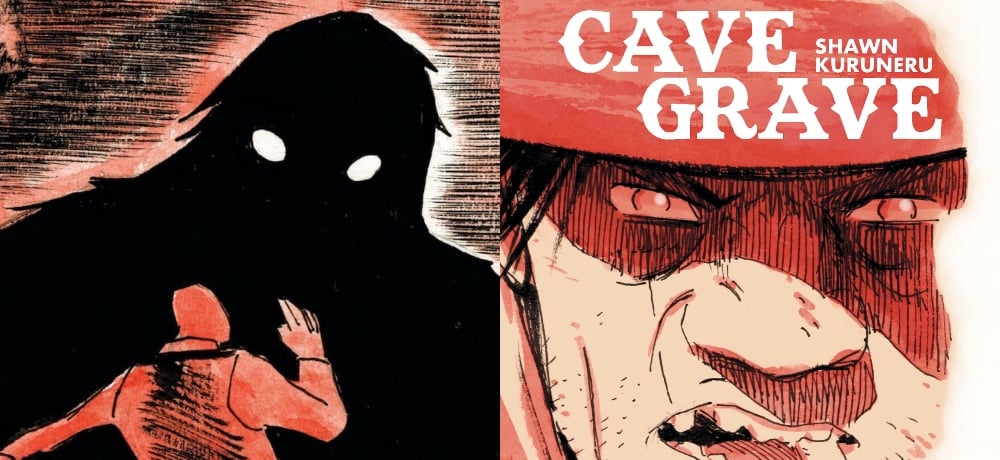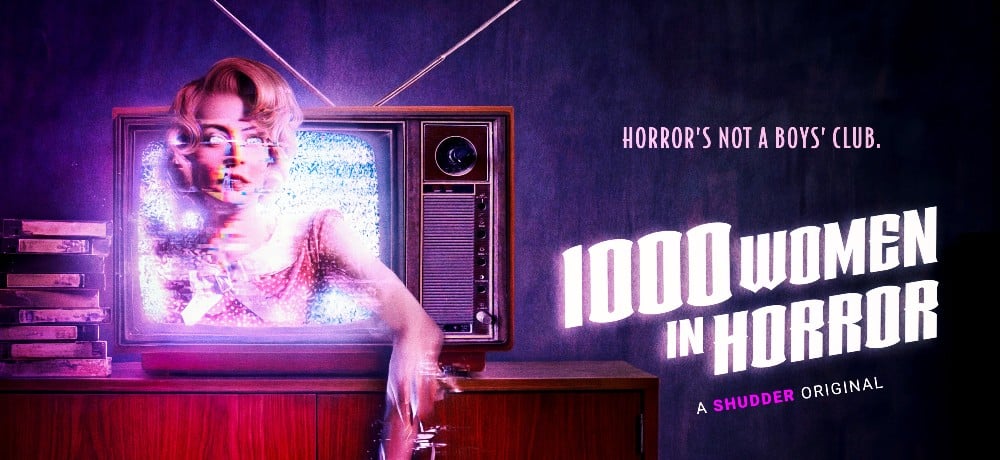





Over the weekend, Netflix dropped an unexpected treat for all of us horror fans, as they released Owen Egerton’s Mercy Black on their streaming service, a surprising approach considering we live in the day and age where it feels like we know everything about every movie coming out months ahead of time.
Ahead of its secretive digital bow, Daily Dead spoke with Egerton about the inspiration behind the story of Mercy Black, how the project ended up being driven by some fierce females both in front of and behind the camera, his experiences working with Blumhouse (who produced the project), and more.
Mercy Black is currently available to stream on Netflix Instant.
Congrats on the film, Owen. I was wondering if you could start off by talking about the story of Mercy Black and the inspirations behind it? Also, how did you approach building the emotional weight to this story and then balancing all of that against the genre elements?
Owen Egerton: Yeah, it's an interesting thing. When we were making the film, it was exactly that. Balancing is a good way of putting it, I suppose, of weaving together genre elements with a story that has a little bit of a gravitas. One of the things that Jason Blum had mentioned to me early on was that, "You know you've got a good horror movie if you're able to take out all the jump scares and all the visual effects, and you still have an intriguing character film, a character study, something that would play at Sundance for what happens to the character, because that's when you're on the right track," which I thought was really good advice.
And with this story, basically there have been stories about the childhood things that we make up, or things that we believe in childhood, and I started looking into it. It was around the time that the Slender Man attacks were happening. There were a couple of other things that happened, and I started looking more into kids who kill and what goes on with them. I think we've had a lot of stories where you've watched the creepy kid do things, but we don't really get into the head of the creepy kid.
I started researching this one particular case of a woman in England, who, when she was a child, she and a schoolmate murdered another kid, and she went to prison. And when she was released in her 20s, she legally changed her name. That path was behind her. She had a family of her own. And when her own daughter was about 12, the press knocked on her door. And I thought about that story, about this person, first of all, coming face to face again with her past, her own child learning what her mother had done at her own age, just the aspects of that. I'm like, "Oh, that's painful, that's hard." Not only what we believe as kids and how that childish belief can have really adult consequences, but also what is it like to confront those consequences again when you're an adult?
Well, it also brings up an interesting discussion of, do we still hold kids accountable for these things into adulthood, especially if they're under the influence of other people or outside forces? It's a really interesting discussion that I don't think we've seen contemplated within the genre before.
Owen Egerton: Right, yeah. I wondered that same question. It was a big thing for us, like, "How responsible am I for the things I said, did, and believed when I was 12?" That was me, and yet, it wasn't me. There's a grey area there.
Yeah, absolutely, and I think it's also very timely, too, just because we're seeing a lot of people who are having to confront things in their past these days, and I think there are some really interesting parallels between what's going on these days versus Marina's story in the film.
Owen Egerton: Gosh, that's very true. I hadn't really considered that, but you're right. There are a lot of people dealing with the reckoning of past mistakes these days, for sure.
You mentioned Jason Blum, who has become this juggernaut in the genre world and even outside the genre world, and I'm curious, was this something where they approached you and wanted to work with you, or was this something like, "Hey, guys, I have this story"? And how much guidance did they give you on the film, or did they just let you run free with everything?
Owen Egerton: It was a bit of all of the above. They read the script that I had written some years back. It was called The Boy at the time, and it was getting a little bit of attention, and that's what brought the project to their attention. At that point, I'd only directed one feature, and I was very grateful that Jason Blum and the folks at Blumhouse had read the script, and they were excited about picking it up. And I said, "Actually, I would really love to direct this." And they said, "We'll look at your first feature," which was this movie called Follow that I made. And because of that, they said, "Okay, we're going to give you this chance."
We went through development, and there were different discussions of how this movie should live, what the central monster should be, really, lots of cool conversations, lots of great insight from the team there, including Ryan Turek and all the other folks. And then eventually they gave me free rein. They very much believe at Blumhouse to give the director as much space and autonomy as they can. Coming in with their thoughts, with their insights, with their experience, which is incredibly valuable, but also allowing a voice and a vision to come through. So that was a great experience.
How was it working with this cast and helping them bring their characters to life? I must say, I was so excited to see Janeane [Garofalo] in this.
Owen Egerton: Well, putting together the cast was just a fantastic experience. It's amazing how much of the experience of making a film is just that, of finding these folks who are going to collaborate with you on bringing these characters to life. Daniella [Pineda] was brilliant. Actually, she had finished up the primary filming of Jurassic World: Fallen Kingdom, but she was still doing pick-up shots and everything, so we had to make sure not to change her hair too much. I like the fact that she came from that film, where she brought this strong, no-nonsense, cool woman to our film, where she plays this broken individual who's rediscovering the world. The ability to do both is fantastic.
And I'm a huge fan of Janeane Garofalo, both her work onscreen, her work off-screen. I like her insight, I like her personality, I like her politics. Even when I disagree with her, I like her. So it was great to send her the script and say, "We'd love you to do this." And she jumped on, and that was a great moment for me. It was like, "Oh, this is going to be fun." And she brought that. She brings to a role all kinds of questions and she brings humor.
She also brings a wonderful sense of humanity. I think that character would've been just not as warm a character if it had been played by anybody else. She just brought something really special to that. And one of the cool things I realized as we were putting this together is that have a nearly entirely female cast in the film. There’s only one male adult. And behind the scenes, we had an amazing crew that was comprised of a lot of women, too. There was our cinematographer, Ellie Ann Fenton, who is just incredible, and this is my second movie with her.
And then there was our first assistant director, Meg Beatty, plus our creature designer and makeup crew, too. As we kept building this crew, I realized that we had a lot of women involved, and it ended up influencing conversations about the subtext of the movie. What does it mean to believe somebody and what does it mean to not believe somebody? When a child is saying, "Hey, this is happening to me, and I've seen these things." And to tell a child, "No, that didn't happen to you. I don't believe you." It opened a lot of things up for us, and I’m so glad we had all these women involved.
And I think, in a way, that you were mentioning current events impacting the thoughts that were going through our mind as we were filming, there was a lot of that. There was a lot of, "What is the gift of believing somebody when they're telling you, 'I'm experiencing this horror'?" As opposed to telling them, "No, don't mention that. That's not a real thing." It added a lot to this story to have all these women involved.
Before we go, it feels like these days with movies, we know so much about them even before we go into them, where we've seen 500 trailers and they release all kinds of clips, too. Is it fun for you to have this movie coming out, where nobody knows what to expect going into it? It's being put out there in a very different way than we usually get, which is pretty cool.
Owen Egerton: It's really exciting. I have to hand that thinking off to Netflix and Blumhouse. They were the ones who said, "Look, this is what we're going to do. We're basically going to be in near radio silence until people can watch the film." And that was different for me, because I like to talk. I was like, "Oh, gosh, I guess I'll be quiet about this." But that really is a super fun and exciting thing that I'm looking forward to, that there's going to be this moment that it's out there in the world and people can hopefully experience it. And there is something fun about that surprise. But I'm with you. There is something so fun about walking into a movie and not knowing a thing, and just sitting down, saying, "Okay, take me to the ride."